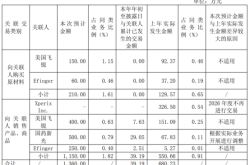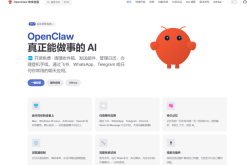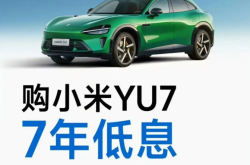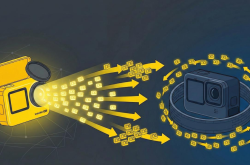The EU insists on imposing a maximum tariff of 35.3% on Chinese electric vehicles
![]() 10/30 2024
10/30 2024
![]() 677
677
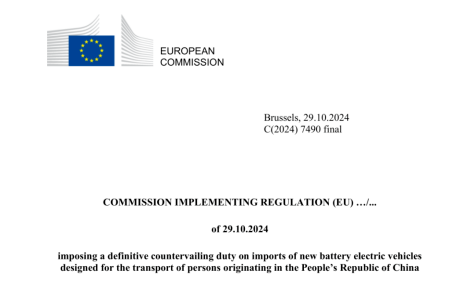

Source of this article: Smart Car Technology
On the afternoon of October 29 local time (late at night on October 29, Beijing time), the European Commission officially announced the final ruling document of the countervailing investigation against Chinese electric vehicles. The ruling insists on imposing an additional countervailing duty of 17% to 35.3% on electric vehicles imported from China, on top of the original 10% tariff, for a period of five years.
According to the official statement released by the European Commission, Chinese export producers will be subject to the following countervailing duties on top of the original 10% tariff:
For BYD, Geely, and SAIC Motor, the EU will impose additional tariffs of 17.0%, 18.8%, and 35.3%, respectively. Other cooperating companies will face a 20.7% tariff, while non-cooperating companies will be subject to a 35.3% tariff. Tesla will be subject to the minimum tariff of 7.8%. This means that the maximum tariff on Chinese electric vehicles exported to the EU will reach 45.3%.
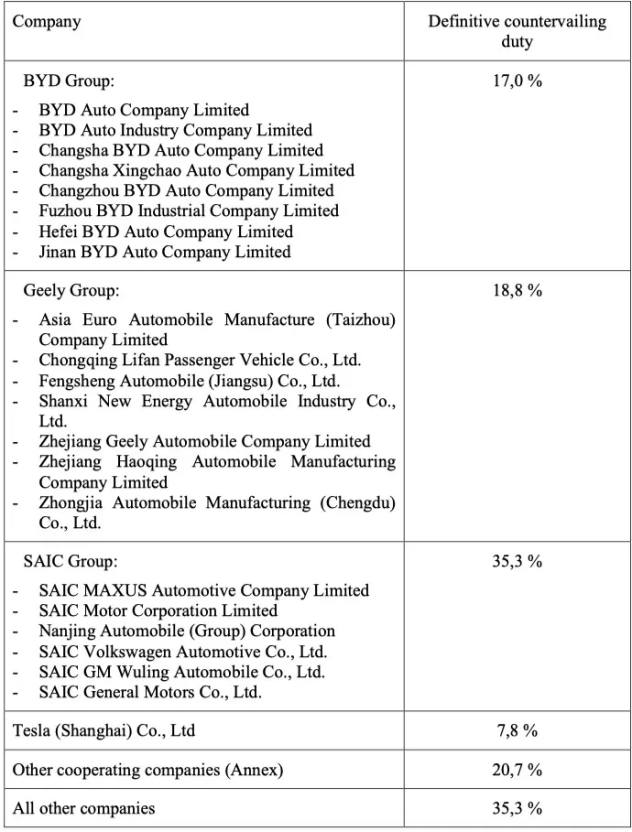
Additionally, Chinese and joint venture automakers such as Aichi, JAC Motor (including Volkswagen Anhui), BMW Brilliance (including Brilliance Xinyi New Energy, Beam Auto), Chery Automobile, FAW Group (including Audi FAW New Energy, Changan Mazda, FAW Toyota, FAW-Volkswagen, Jiangsu Guoxin New Energy Passenger Cars), Changan Automobile (including Chongqing Lingyao Automobile, Hefei Changan Automobile, Nanjing Changan Automobile), Dongfeng (including Thalys, Dongfeng Honda, Dongfeng Liuzhou Automobile, Dongfeng Peugeot Citroen Automobiles, eGT New Energy, Hoven), Great Wall Motor (including Hebei Changzheng Automobile, Rizhao WEY Automobile), NIO, XPeng, Li Auto, Nanjing Golden Dragon, etc., will be subject to a 20.7% tariff.
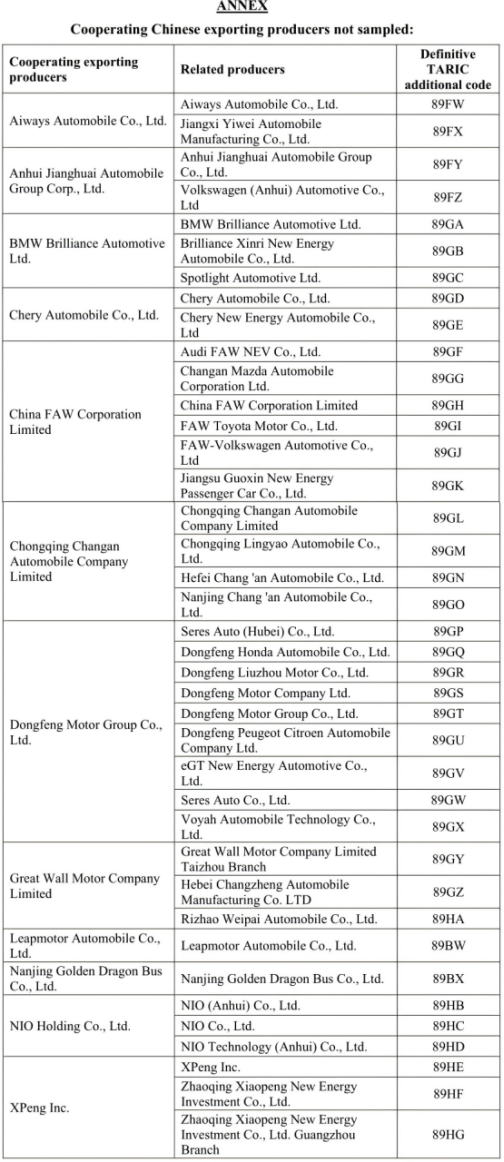
Ironically, the statement mentions that despite disagreements, the EU and China continue to actively seek alternatives compatible with WTO rules. Additionally, the European Commission remains open to individual negotiations with individual exporters regarding price undertakings.
In response to the EU's announcement of the final ruling of the countervailing investigation against Chinese electric vehicles, the Ministry of Commerce issued a statement on October 30, explicitly stating that China does not recognize or accept the ruling results and has filed a lawsuit under the WTO dispute settlement mechanism. China will continue to take all necessary measures to resolutely safeguard the legitimate rights and interests of Chinese enterprises. Meanwhile, China notes that the EU has expressed its willingness to continue negotiations with China on price undertakings. China has always advocated resolving trade disputes through dialogue and negotiations and has been making its utmost efforts to do so. Currently, technical teams from both sides are conducting negotiations for a new phase, and China hopes that the EU will work with China constructively to reach a mutually acceptable solution as soon as possible, following the principles of "pragmatism and balance" and accommodating each other's core concerns, in order to avoid escalating trade frictions.
Earlier, during a video conference between Minister Wang Wentao and Executive Vice-President Dombrovskis of the European Commission on October 25, China made it clear that the China Chamber of Commerce for Import and Export of Machinery and Electronic Products, fully authorized by various types of Chinese enterprises, had proposed a price undertaking plan representing the overall position of the industry. Based on this plan, China and the EU have conducted several rounds of negotiations. The spokesperson for the Ministry of Commerce emphasized that if the EU conducts separate negotiations on price undertakings with individual enterprises while negotiating with China, it will undermine the trust between the two sides and interfere with the overall negotiation process. China hopes that both sides will follow the existing negotiation framework and accelerate progress based on the previous negotiation results to achieve substantial breakthroughs as soon as possible.
On major issues involving national and corporate interests, China's position is firm and unyielding. Historically, even facing the challenge of high tariffs, Chinese automakers have still been able to achieve their export goals. However, for models without cost advantages, tariffs exceeding 30% may have a significant impact.
As the EU imposes tariffs on Chinese electric vehicles, the German automotive industry is facing strikes by thousands of workers demanding higher wages, with Volkswagen potentially announcing the first closure of its domestic factories in Germany. On October 29 local time, Hildegard Müller, President of the German Association of the Automotive Industry, issued a statement saying that the EU's imposition of tariffs on electric vehicles imported from China represents a setback for global free trade, negatively impacting Europe's prosperity, employment, and economic growth. Müller called for open negotiations to seek solutions to eliminate additional tariffs, noting that tariffs would directly increase the cost of purchasing cars for consumers, potentially hindering the promotion of electric vehicles.
As a commonly used trade protection measure, countervailing measures can be traced back to the Tariff Act of the United States in 1890. Since 2010, when the EU first initiated a countervailing investigation against China, it has conducted 18 such investigations. Of these, only six cases were closed without measures, and nearly two-thirds of the cases resulted in the implementation of corresponding measures. Regarding the EU's countervailing ruling against electric vehicles, a spokesperson for China's Ministry of Commerce stated that China would file a lawsuit under the WTO dispute settlement mechanism. It is understood that on January 26, 2022, China won a lawsuit against the US countervailing measures at the WTO, with the WTO ruling that China has the right to impose trade retaliation of US$645 million annually against the US.
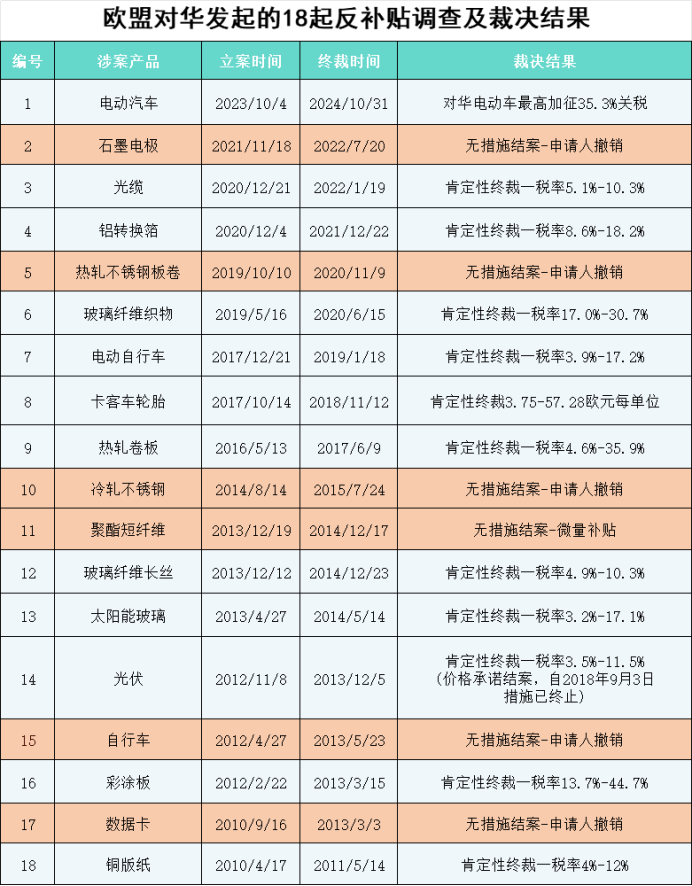
The EU's countervailing investigation against Chinese electric vehicles was not initiated by the industry but rather by the European Commission based on the threat of injury. In the sample survey of Chinese exporters, the EU did not follow rules and conventions but focused on leading Chinese new energy vehicle companies. Furthermore, the European Commission demonstrated a clear predisposition to preconceived conclusions during the investigation, resulting in tariffs that differed between Chinese and foreign companies, demonstrating a clear target.
Facing weakened competitiveness, European automakers require a healthy and competitive environment. From both geopolitical and economic perspectives, dialogue between China and Europe is the best way to resolve differences, avoid trade wars, and promote common development. Considering the current challenges facing the EU, European automakers, as direct beneficiaries of free and fair trade and open markets in globalization, should actively respond.
Disclaimer:
All works marked with "Source: XXX (not Smart Car Technology)" on this official account are reprinted from other media. The purpose of reprinting is to convey and share more information and does not necessarily endorse their views or assume responsibility for their authenticity. The copyright belongs to the original author. If there is any infringement, please contact us for deletion.

